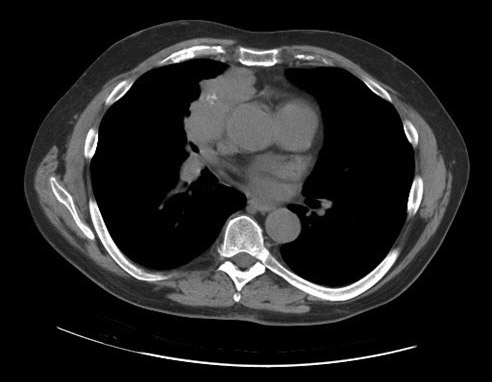Latest updates on ACP's priorities, initiatives
ACP Spotlight offers readers a look at ACP's current top priorities and initiatives, as well as highlights from our e-newsletter, ACP Internist Weekly.
ACP provides funding for Project 95
ACP is providing financial support to Project N95 in an effort to ensure that personal protective equipment (PPE) is available for frontline ACP members and internists and other frontline health care workers. ACP's financial contribution will help Project N95 to secure appropriate inventory levels for PPE, particularly for hard-to-obtain items such as nitrile gloves.
ACP has collaborated with Project N95 since June 2020 to provide PPE for internal medicine physicians. Since the beginning of the pandemic, ACP has been vigorously advocating for the need for adequate PPE, calling on suppliers and the federal government to ensure the availability of essential PPE to protect frontline physicians.
Project N95 vets and verifies all products and suppliers and uses manufacturers and suppliers who meet quality, cost, and delivery expectations. All of the N95 respirators that are sold carry (at minimum) National Institute for Occupational Safety and Health (NIOSH) certification. More information on Project N95 and ACP, including how to order from Project N95, is on ACP's website.
New emotional support hub offers well-being resources

As part of ACP's Well-Being and Professional Fulfillment initiative and as a recognition of the unprecedented stresses caused by the COVID-19 pandemic to internists and internists-in-training, ACP has launched a collection of resources aimed at helping members improve their emotional well-being. Resources include easily accessible peer support through the Physician Support Line and free and affordable confidential counseling through The Emotional PPE Project and The Therapy Aid Coalition. The I.M. Emotional Support Hub is online. All of ACP's Physician Well-being activities are online. For more information and questions, please contact acpwellbeing@acpprograms.org.
Save the date for ACP Future I.M. Experience
Join ACP on May 14-15 for Future I.M. Experience, a virtual, live, educational meeting, free and exclusive to ACP Resident/Fellow and Medical Student Members. The meeting will include over 20 sessions on career planning, clinical skills, and leadership, as well as the opportunity to learn from and engage with experts in internal medicine. Sessions include:
- Doctor's Dilemma®
- Financial Well-Being
- Live Podcasting
Attendees can attend a Town Hall hosted by ACP's leadership, hear the winners of the 2021 Abstract and Poster Competition, participate in a virtual escape room, attend an inspiring Story Slam, and more. Learn more and register today.
New case study examines EHR integrity, patient-physician relationship
“Ethics, Electronic Health Record Integrity and the Patient-Physician Relationship” is now available for CME credit and MOC points. EHRs can sometimes pose new ethical issues in terms of the accuracy of patient records and carry implications for the patient-physician relationship. The case study examines how the EHR should serve the goals of medicine and patient care. Developed by ACP's Ethics, Professionalism, and Human Rights Committee and the Center for Ethics and Professionalism, it is available on Medscape and a login is required. More information about ethics and professionalism activities from ACP is available.
ICYMI: Highlights from ACP Internist Weekly
- Food insecurity associated with less weight loss, even with intense intervention. Researchers in Louisiana performed a two-year, cluster-randomized, two-group pragmatic trial in 18 primary care clinics to test the effectiveness of a high-intensity lifestyle-based program for obesity treatment in an underserved population. The mean absolute weight difference between groups was 5.2 kg among food secure patients and 2.7 kg among food insecure patients. Results were published March 9 by Annals of Internal Medicine and summarized in the March 9 ACP Internist Weekly.
- Naloxone coprescribing appears uncommon in patients taking long-term opioids. In a retrospective cross-sectional study of deidentified claims from U.S. retail pharmacies nationwide, 2.3% of 6,060,728 long-term opioid therapy episodes included naloxone coprescribing. Coprescribing was less likely with cash payment and other types of insurance and more likely with high-dose opioid episodes, with concomitant benzodiazepines, and in counties where fatal overdose rates were higher. Results were published Feb. 17 by the Journal of General Internal Medicine and summarized in the Feb. 23 ACP Internist Weekly.
ACP Internist Weekly is an e-newsletter published every Tuesday and available online. Subscribe online.




